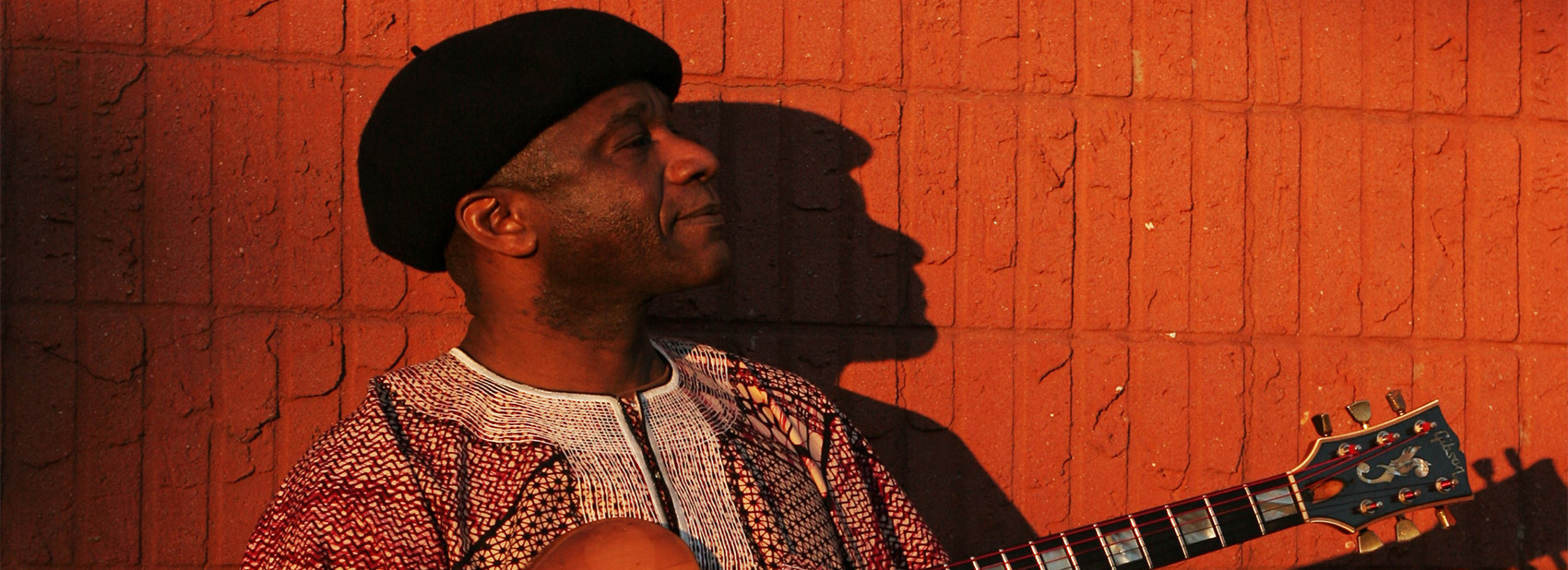- English
- Español

‘Djele’, which means ‘blood’, is a musician caste of the Mande people of West Africa. The Mande Empires, with their center of power in what is now Mali, dominated much of West Africa from the 8th century CE until the last Mande king was defeated by better armed Moroccans at the close of the 16th century. As the Mande people flourished politically, so too did their music and culture. The music of the Mande Djele spread throughout West Africa, and has profoundly influenced the music of the region.
Lankandia Rehearsing
The Cissoko clan, of which Lankandia is a distinguished elder, is the Djele family most closely associated with the kora, a calabash backed harp of particular importance to the Djele tradition. It was in fact a Cissoko ancestor who first invented the instrument, and the finest Kora players are still said to come from the family. Lankandia plays the kora with the artistry and mastery of a true initiate. Kora playing is literally in his blood.
Lankandia grew up in Casamance, Senegal, where his grandfather, an émigré from Mali, is said to have been the first to introduce the kora. Under the guidance of Lankandia’s grand-father, father and uncles, kora music in Casamence diverged from its Malian origins. Additional strings were added to the kora to increase its range, and the instrument began to be played more energetically, sometimes even being strummed or slapped like in Spanish flamenco. This more active style of kora has naturally lead itself to blending with the fast paced percussive music of the Senegalese Wolof – in particular the Mbalax, a dance style popularized internationally by Youssou N'Dour. Lankandia, while a fastidious practitioner of his ancestral music, has absorbed these influences, and if not playing for an official Mande function, he enjoys blending his traditional Djele music with Wolof rhythms.
Lankandia’s talent was recognized early on by the director of Senegal’s national orchestra, and Lankandia was chosen to represent Senegal's Mande community in the prestigious Théâtre National Daniel Sorano. In his 20 years with Théâtre National, Lankandia toured the world's capitals as one of Senegal's cultural emissaries. The orchestra, composed of the most outstanding musicians from each of Senegal's many ethnic groups, also further exposed Lankandia to a diverse musical styles.
Lankandia eventually left Théâtre National to settle in New York City. He compares his travels to that of his grandfather before him, saying it is the role of the Djele to travel, to search for fortune and to spread Mande culture. In his 12 years in New York, where the immigrants of various West African countries form a single community , Lankandia has had the opportunity to work closely with musicians from all over West Africa. In his work with IASO, Lankandia has drawn on this network to form a group whose members and styles represent West Africa’s diversity and cultural richness. At the center of it, of course, is the Djele Lankandia and his kora.
Vraiment tu nous manque on fait toujours des prières pour vous que la terre te sois légère jaurais aimée que tu sois la à ma me souvenir manoir gens que tu sois mon premier supportere mes le bon dieu la décidé inssi on y peut rien
Papap que la terre de Marsassoum te soit legere .
Votre fils Dialimady Cissoko
Add new comment